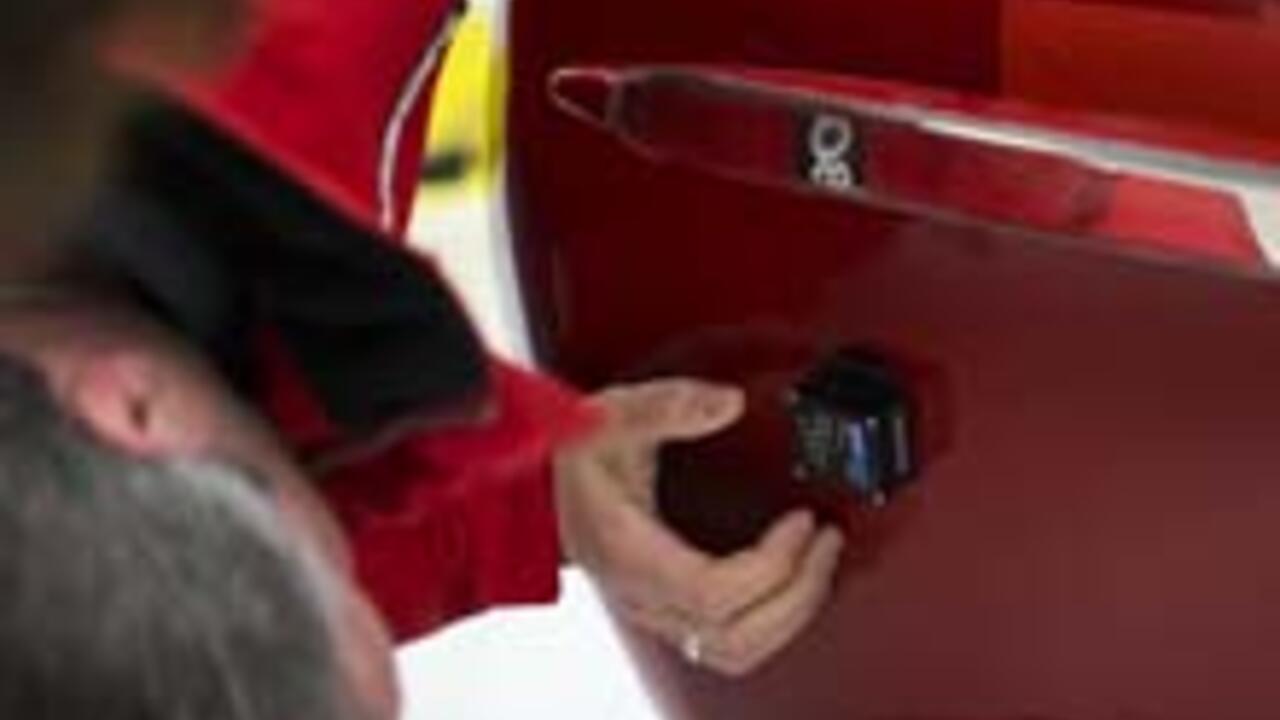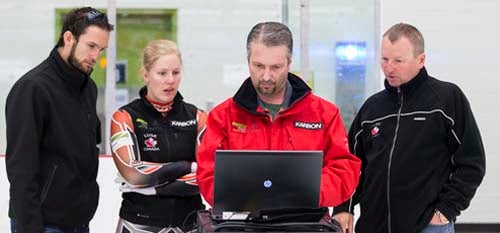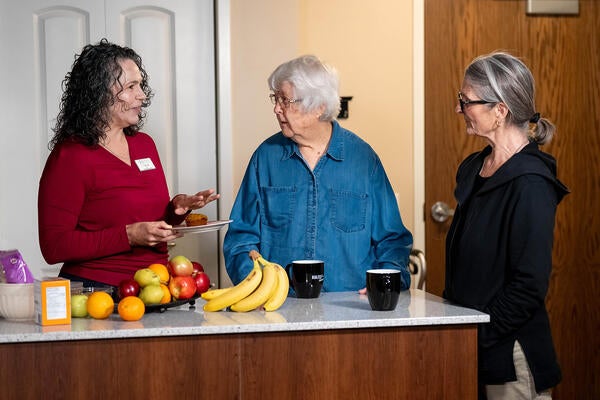
Waterloo alum is biomechanics expert for Olympic team
Canadian luge athletes look to Waterloo kinesiology grad for an explosive start out of the gate

Canadian luge athletes look to Waterloo kinesiology grad for an explosive start out of the gate
By Staff Marketing and Strategic CommunicationsCanadian luge athletes speed down icy tracks in open sleds at upwards of 130 kilometres an hour. It’s thrilling to watch, but for Pro Stergiou, a Waterloo alum, the most interesting part is the start.
Stergiou, a biomechanics expert, uses high-speed video and accelerometers to help him analyze those early moments in the race when Olympic luge athletes pull off the starting handles.
“We know that their start is very vital to the race,” says Stergiou, who has been working with luge Olympic athletes for almost ten years.
Helping coaches support high-performance athletes

Stergiou, director of biomechanics and performance analysis at the Canadian Sport Institute Calgary, was inspired to pursue a career in biomechanics while a student in the Department of Kinesiology at the University of Waterloo.
Stergiou works with high performance athletes but also supports coaches in his role as instructor for the National Coaching Institute’s biomechanics course where he teaches elite Canadian coaches about technology and biomechanics.
“I explain some of the various technical tools to help in the assessment of an athlete’s movement and help coaches learn how to best support their athletes,” he says.
Stergiou has worked extensively with Alex Gough, one of Canada’s top luge athletes. The luge team is competing this week and is poised to medal in the mixed team relay scheduled for Thurs. Feb. 13.
“The key to success is all about building a strong relationship with athletes right from day one,” says Stergiou, who graduated in 1993. He credits a co-op position with the late Dave Winter, a former faculty member in kinesiology, for inspiring him to pursue a career in biomechanics.
Biomechanics expert praises hands-on learning at Waterloo
“I didn’t even know what kinesiology was when I applied to university,” Stergiou says. “A friend told me about the program in the myriad of physical education programs and I was like Kines-what? It was just my good fortune that I found my way to kinesiology and the field of biomechanics.”
Now, as he reflects on his five years at Waterloo, three years playing varsity soccer, the co-op program and his studies in kinesiology, Stergiou still attributes the skills and knowledge he has today to a top-notch program that gave him hands-on learning in the lab that helped him hit the ground running upon graduation.
Stergiou has watched many amateur athletes achieve their goal and become Olympic medalists over the years. For him, the sense of accomplishment he feels knowing he was part of that dream is all that matters at the end of the day.
“When an athlete attributes their success to your work — what could be a better reward than that?”

Read more
How machine learning empowers collaboration between computer science, math and medical research

Read more
Dr. Heather Keller discusses the need to transform mealtimes in Canada’s long-term care homes from a service to a meaningful form of care

Read more
“I’m just like you.”
The University of Waterloo acknowledges that much of our work takes place on the traditional territory of the Neutral, Anishinaabeg, and Haudenosaunee peoples. Our main campus is situated on the Haldimand Tract, the land granted to the Six Nations that includes six miles on each side of the Grand River. Our active work toward reconciliation takes place across our campuses through research, learning, teaching, and community building, and is co-ordinated within the Office of Indigenous Relations.